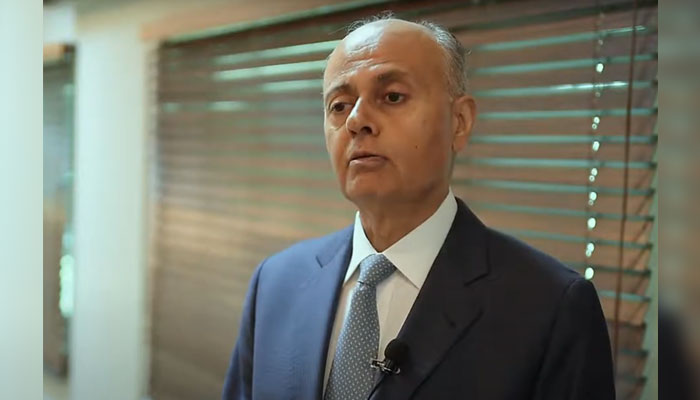Solutions to economic, foreign policy challenges offered
Islamabad:During an in-depth discussion on pressing national issues of the economy, environment and foreign policy here, experts offered insights and potential solutions.
Pakistan Business Council chief executive officer Ehsan Malik called for a strategic, risk-based approach to economic growth and urged policymakers to proceed with caution, ensuring stability before pursuing expansion. He pointed to the country's strengths in agriculture and human capital, especially in IT, which, he said, has become a significant driver of export growth.
Malik, however, warned that foreign investment should only be welcomed if it contributed to export growth, as investments without a trade surplus did little to strengthen the economy. Former ambassador to the US, UK, and UN Maleeha Lodhi identified five key priorities for Pakistan’s foreign policy: relations with China and the US, managing tensions with Afghanistan and India, balancing ties with Saudi Arabia and Iran, and maintaining positive relations with the European Union.
She emphasised China’s significance in Pakistan’s foreign policy but noted challenges such as political instability, security concerns for Chinese personnel, and the impact of public requests for loan rollovers. Regarding US relations, Lodhi insisted that the American forces' withdrawal from Afghanistan had reduced Pakistan's geopolitical importance for Washington, complicating efforts for re-engagement.
She said while Washington's strategic focus was on containing Beijing, Islamabad couldn't align with anti-China efforts due to its strong ties with Beijing. The former envoy also discussed Pakistan’s strained relations with its neighbours, especially India and Afghanistan, and highlighted the lack of a crisis management framework.
She urged Pakistan to normalise relations with Afghanistan and improve ties with Iran, pointing to recent positive developments with Tehran. Chairperson of the Senate's standing committee on climate change Sherry Rehman shed light on the challenges the local businesses face in adapting to environmental disruptions as well as the lack of incentives for them to clean up supply chains and decarbonise, along with barriers such as unstable regulatory environments and inconsistent electricity pricing. She called for businesses to set clear sustainability targets and prioritise transparency in environmental, social and governance reporting. Rehman also stressed the importance of energy efficiency and renewable energy for all industries and proposed investment in technologies to reduce plastic use and converting waste into energy.
-
 Cillian Murphy Gets Honest About Voldemort Rumours In 'Harry Potter'
Cillian Murphy Gets Honest About Voldemort Rumours In 'Harry Potter' -
 Josh Duhamel Finally Reveals Why Marriage To Ex Wife Fergie Broke
Josh Duhamel Finally Reveals Why Marriage To Ex Wife Fergie Broke -
 Princess Beatrice, Princess Eugenie Are Broken After Great Royal Snub
Princess Beatrice, Princess Eugenie Are Broken After Great Royal Snub -
 'The Mummy 4' Directors Hint At Soft Reboot With Rachel Weisz Comeback
'The Mummy 4' Directors Hint At Soft Reboot With Rachel Weisz Comeback -
 Harrison Ford Shares Rule He's Set In His Third Marriage
Harrison Ford Shares Rule He's Set In His Third Marriage -
 Harrison Ford's Emotional Speech Feels Like End Of An Era?
Harrison Ford's Emotional Speech Feels Like End Of An Era? -
 Prince Harry Is Lowest On Prince William ‘priority List’ Amid Crisis
Prince Harry Is Lowest On Prince William ‘priority List’ Amid Crisis -
 Princess Eugenie's Next Move Sparks New Royal Tensions
Princess Eugenie's Next Move Sparks New Royal Tensions -
 Jennifer Hudson Reveals Financial Advice She Gives Her Teen Son
Jennifer Hudson Reveals Financial Advice She Gives Her Teen Son -
 Sarah Ferguson Acquainted Daughters To Epstein For Sake Of ‘class’
Sarah Ferguson Acquainted Daughters To Epstein For Sake Of ‘class’ -
 Jennifer Lopez Dumps Ben Affleck Again
Jennifer Lopez Dumps Ben Affleck Again -
 Elon Musk’s XAI To Repay $3 Billion Debt Early, Report Claims
Elon Musk’s XAI To Repay $3 Billion Debt Early, Report Claims -
 What Will Happen To HBO Max After The Paramount-Warner Bros Merger?
What Will Happen To HBO Max After The Paramount-Warner Bros Merger? -
 Machine Gun Kelly Honors Daughter Saga With New Hand Tattoo
Machine Gun Kelly Honors Daughter Saga With New Hand Tattoo -
 Shamed Andrew Turning To Reverends Amid ‘lonely Existence’
Shamed Andrew Turning To Reverends Amid ‘lonely Existence’ -
 Sarah Ferguson Downfall Is Result Of Her ‘bad Side,’ Spills Expert
Sarah Ferguson Downfall Is Result Of Her ‘bad Side,’ Spills Expert




